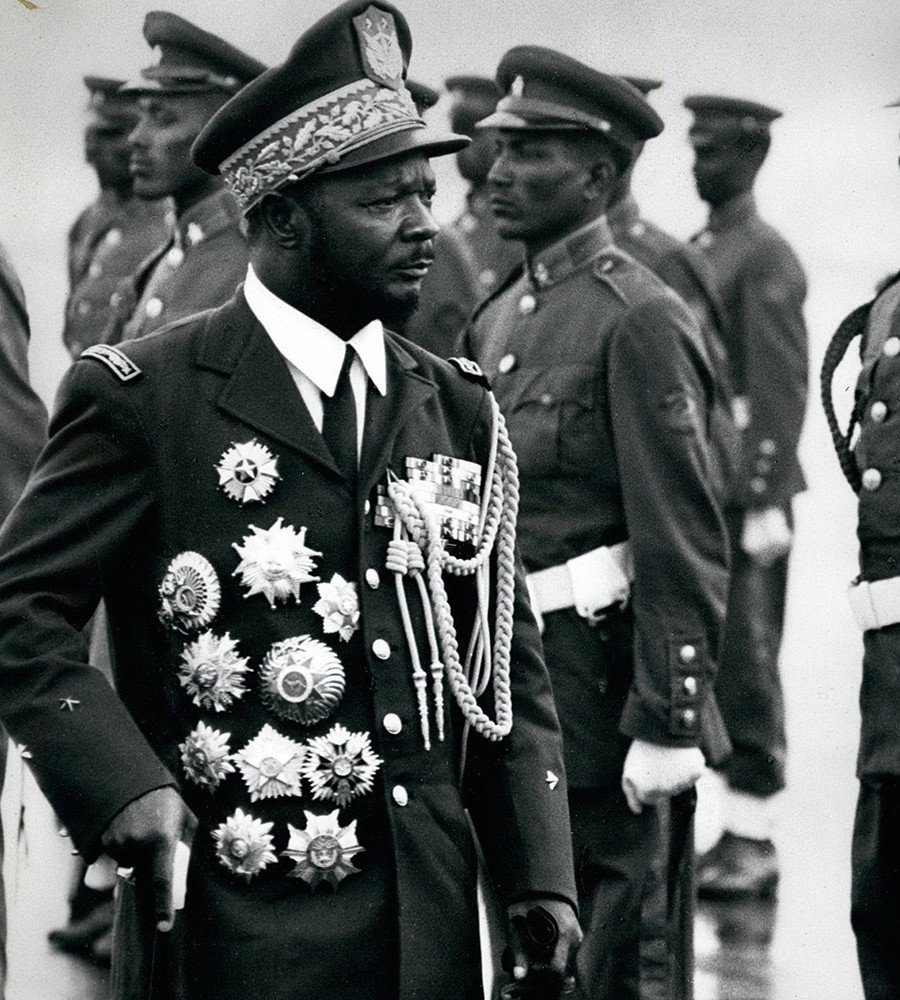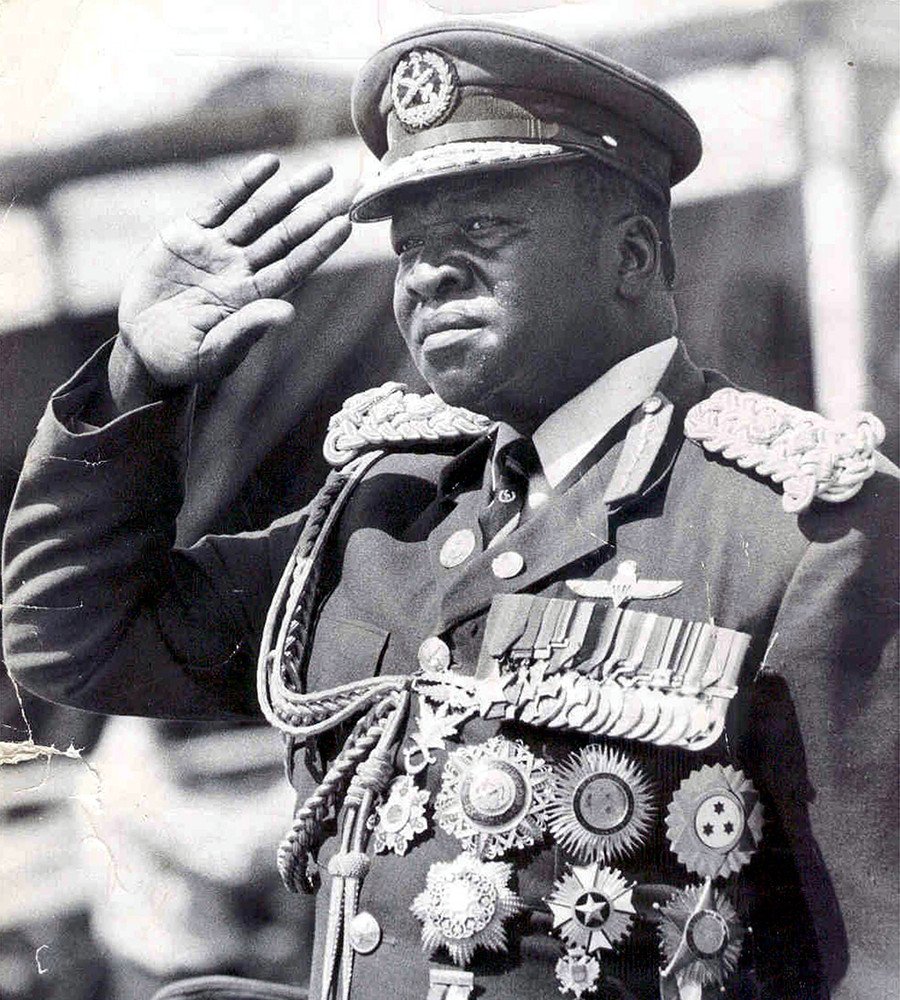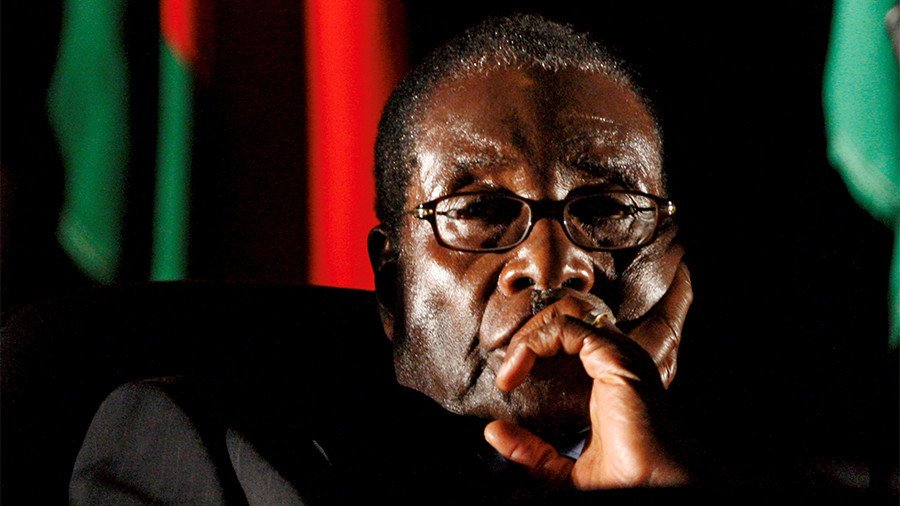With a military coup in Zimbabwe under way, the country’s longtime ruler Robert Mugabe may be set to lose his lengthy grip on power. Mugabe, a venerable figure in Africa, is reviled as a ruthless dictator in the West.
The history of the Black Continent is full of rulers blamed for grabbing power through force, brutality against opponents, embezzlement of public funds, aggressive foreign policy and other misdeeds. But some stand out and get remembered for particularly ruthless actions, eccentricity of behavior, or some other facts of their rule. Mugabe’s anti-achievement of destroying his country’s currency is what he will probably be remembered for in half a century.
RT recalled some other rulers of Africa and the reasons their names are unlikely to be forgotten. We took only the sub-Saharan part of the continent, so Libya’s Muammar Gaddafi, with his all-female guard and insistence of staying in his tent while attending the UN headquarters, didn’t get on the list.
Jean-Bédel Bokassa
(1921 – 1996)

He was an officer of the French colonial troops, who was awarded the Legion of Honor medal and other military merits during his service. He was then a leader of a coup against his cousin, a president-turned-emperor and a terror of Central Africa until 1979, when France sent troops during Bokassa’s visit to Libya to take over his palace and replace him with the same cousin he ousted 15 years ago. A fan of pompous dress styled after France’s age of Napoleon, he ordered the killing of over 100 school students, who protested against the new uniforms their families couldn’t afford. Rumored to favor unusual ways of executing his enemies, such as throwing them to a crocodile pond or running them over with a truck, the ousted emperor was tried in absentia. The only charge that didn’t stick was on alleged ritual cannibalism. Bokassa eventually returned to the Central African Republic and lived as a free man and a self-proclaimed 13th apostle.
Idi Amin Dada
(c.1925 – 2003)

In some regards, a clone of Bokassa, with Britain as the colonial patron instead of France. There was a military career in the British colonial troops with honors and decorations, a coup to take over Uganda, numerous abuses and affluent lifestyle, erratic behavior and rumors of cannibalism and an eventual replacement by the same person he ousted. His downfall however came not in the form of a commando raid from Her Majesty Elizabeth II, but a disastrous war with Tanzania, after which he was ousted and ended up in Saudi Arabia. But he did have a brush with foreign commandos on a surprise mission in 1974, when Israel sent its troops to rescue Jewish hostages from a hijacked plane, killing several dozen Ugandan troops and destroying 11 fighter jets in the process. Amin is well remembered in the West for declaring himself the King of Scotland, thanks to the 2007 biopic movie.
Hissene Habre
(1942 – )
Dubbed by Human Rights Watch as an “African Pinochet,” Chadian dictator Hissene Habre came to power enjoying the support of France and the US. Both countries provided him with massive military aid and financing in an attempt to counterpose Habre to Muammar Gaddafi in neighboring Libya. Habre ruled Chad between 1982 and 1990, and fled to Senegal, taking Chad’s public funds with him after he was ousted. He was accused of being responsible for up to 40,000 political murders and systematic torture by a Truth Commission in 1992. In 2013, the dictator was found guilty by the Extraordinary African Chambers in Senegal of mass murder and crimes against humanity, including summary executions, kidnapping and torture.
Obiang Mbasogo
(1942 – )
The longest-serving African ruler so far, Obiang Mbasogo, came to power in Equatorial Guinea in 1979 through a military coup. He overthrew and subsequently executed his own uncle and the country’s previous dictator, Francisco Macías Nguema. However, Mbasogo stands the pace of his predecessor, and is accused of multiple human-rights abuses, including unlawful killings, kidnappings and systematic torture of prisoners. There are also those who accuse him of cannibalism, with one of his political rivals saying that he is afraid to return to Guinea fearing that Mbasogo would “eat my testicles.” On a lighter note, the long-time leader was proclaimed the country's “god" with "all power over men and things" during a broadcast of a state-operated radio station in 2003. It mentioned that Mbasogo "can decide to kill without anyone calling him to account and without going to hell."
Yahya Jammeh
(1965 – )
Jammeh came to power through a military coup in 1994, noticeable for one fact. The coup broke the Gambia’s anomalous record of democratic change of government, which went back over 2 decades by that time. During his rule decorum was maintained, with elections continuing his presidency to four full terms. And it was a lost election last year, which ultimately ended his reign (with a little help from neighboring countries’ troops sent it to resolve a constitutional crisis). Probably not as brutal as Amin or Bokassa, Jammeh holds a prominent place as an evil dictator among the Western public, thanks to his relentless and vocal persecution of LGBT minorities, claims that he can cure AIDS and other diseases with herbal remedies and an alleged hunt for witches he reportedly suspected of killing his aunt with magic.

